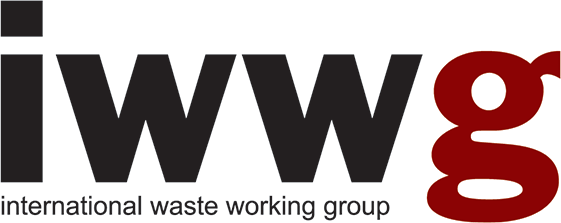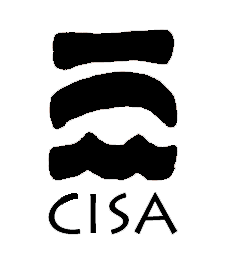WASTE MANAGEMENT IN DEVELOPED AND DEVELOPING COUNTRIES: THE CASE STUDY OF UMBRIA (ITALY) AND THE WEST BANK (PALESTINE)
- Available online in Detritus - Volume 03 - September 2018
- Pages 171-180
Released under CC BY-NC-ND
Copyright: © 2018 CISA Publisher
Abstract
A survey and a preliminary comparison were conducted between the waste management systems and schemes implemented in the Region of Umbria (Italy) and the West Bank (Palestine). The Region of Umbria operates in a wider political legal and economic supporting scheme, i.e., the one promoted by EU Directives. The West Bank showed all the typical economic, legal and political features of a developing country. From the economic point of view the incidence of the cost for waste collection and management with respect to the per capita GDP was 0.82% for the Region of Umbria and 1.2% for the West Bank. Although the incidence for the West Bank was higher, it was not enough to support the budget necessary for efficient waste management. A relevant aspect was the practically similar amount of organic waste generated per capita and per year in the two areas. The West Bank lacks infrastructures and adequate collection systems and there are no composting facilities. The number of mechanical sorting facilities was 0.034/105 inhabitants. The current recycling rate for the West Bank is about 6%. Some criticism about the sustainability of recycling and composting rates for the Region of Umbria are also highlighted. Some benefits for the West Bank, such as the introduction of home composting, are identified. This will affect both the amount and the costs of waste collected allowing the municipalities to allocate more money for separated collection of recyclables.Keywords
Editorial History
- Received: 17 Jan 2018
- Revised: 16 Aug 2018
- Accepted: 30 Aug 2018
- Available online: 27 Aug 2018
References
Al-Khatib, A., Arafat, H.A., Besheer, T., Shawahneh, H., Salahat, A., Eid, J., Ali, W. 2007. Trends and problems of solid waste management in developing countires: A case study in seven Palestinian districts. Waste Management 27,1910-1919.
Al-Khatib, A., Monou, M., Zahra A.S.F.A., Shaseen, H.Q., Kassinos, D. 2010. Solid waste characterization, quantification and management practices in developing countries. A case study: Nablus district – Palestine. Journal of Environmental Management 91,1131-1138.
ARIJ. 2015. Status of the Environment in the State of Palestine 2015. http://www.arij.org/files/arijadmin/2016/SOER_2015_final.pdf.
Caniato, M., Vaccari, M. 2014. How to assess solid waste management in armed conflicts? A new methodology applied to the Gaza Strip, Palestine. Waste Management and Research 32 (9), 908-917.
CEC. 1977. Second EC Environment Action Programme: Commission of the European Communities, Brussels.
Centanni, E. 2012. Map available in “Is Palestine Really a Country?”. Political Geography Now, 6 December 2012. http://www.polgeonow.com/2012/12/is-palestine-really-country.html.
CIA. 2017. “The World FactBook. Middle East: West Bank”. https://www.cia.gov/library/publications/the-world-factbook/geos/we.html.
COM(614). 2015. Communication from the Commission to the European Parliament, the Council, the European Economic and Social Committee and the Committee of regions – Closing the Loop – An EU Action plan for the Circular Economy. 2.12.2015, Brussel. Available at: http://eur-lex.europa.eu/resource.html?uri=cellar:8a8ef5e8-99a0-11e5-b3b7-01aa75ed71a1.0012.02/DOC_1&format=PDF . accessed on 20.02.2017.
Couth, R., Trois, C. 2011. Waste management activities and carbon emissions in Africa. Waste Management 31,131-137.
Couth, R., Trois, C. 2012. Sustainable waste management in Africa through CDM projects. Waste Management 32,215-2125.
De Gioannis, G., Muntoni, A., Cappai, G., Milia, S., 2009. Landfill gas generation after Mechanical Biological Treatment of Municipal Solid Waste. Estimation of gas generation rate constants. Waste Management 29, 1026–1034.
Di Maria, F. 2012. Upgrading of a Mechanical Biological Treatment (MBT) plant with a Solid Anaerobic Digestion Batch: A Real Case Study. Waste Management & Research, 30 (10): 1089-1094.
Di Maria, F., Sordi, A., Micale, C. 2013a. Experimental and life cycle assessment analysis of gas emission from mechanically–biologically pretreated waste in a landfill with energy recovery. Waste Management 33, 2557-2567.
Di Maria, F., Gigliotti, G., Sordi, A., Micale, C., Zadra, C., Massaccesi, L. 2013. Hybrid solid anaerobic digestion batch: Biomethane production and mass recovery from the organic fraction of solid waste. Waste Management & Research, 31, 869-873.
Di Maria, F., Micale, C. 2014. A holistic life cycle analysis of waste management scenarios at increasing source segregation intensity: The case of an Italian urban area. Waste Management 34:2382-2392.
Di Maria, F., Sordi, A., Cirulli, G., Gigliotti, G., Massaccesi, L., Cucina, M. 2014. Co-treatment of fruit and vegetable waste in sludge digesters. An analysis of the relationship among bio-methane generation, process stability and digestate phytotoxicity. Waste Management 34(?);1603-1608.
Di Maria, F., Micale, C., Morettini, E., Sisani, L., Damiano, R. 2015. Improvement of the management of residual waste in areas without thermal treatment facilities: A life cycle analysis of an Italian management district. Waste Management 44(?), 206-215.
Di Maria, F., Segoloni, E., Pezzolla, D. 2016. Solid anaerobic digestion batch of bio-waste as pre-treatment for improving amendment quality: The effect of inoculum recirculation. Waste Management 56,106-112.
Di Maria F, Sisani F. 2017. A life cycle assessment of conventional technologies for landfill leachate treatment. Environmental Technology & Innovation, 8, 411-422.
Di Maria F, Sisani F, Contini S, Ghosh SK. 2018. Impact of different schemes for treating landfill leachate. Waste Management 71,255-266.
D. Lgs. 2010. Decreto Legislativo 29 aprile 2010, n.75. Riordino e revisione della disciplina in materia di fertilizzanti, a norma dell’articolo 13 della legge 7 luglio 2009, n. 88. Gazzetta Ufficiale n. 121 26 Maggio 2010.
Guerrero, L.A., Maas, G., Hogland, W. 2013. Solid waste management challenges for cities in developing countries. Waste Management 33,220-232.
Henry, RK., Youngsheng, Z., Jun, D. 2006. Municipal solid waste management challenges in developing countries – Kenyan case study. Waste Management 26(?),92-100.
ISPRA. 2016. Rapporto Rifiuti Urbani. Edizione 2016. ISPRA, Rapporti 251/2016. ISBN 978-88-448-0791-7.
ISTAT. 2016. Available at: www.istat.it/it/umbria Accessed on 25.03.2017.
Komilis, D.P., Ham, R.K., Stegmann, R., 1999. The effect of Municipal Solid Waste pre-treatment on landfill behaviour: a literature review. Waste Management and Research 17, 10–19.
Kumar, S., Bhattacharyya, J.K., Vaidya, A.N., Chakrabarti, T., Devotta, S., Akolkar, A.B. 2009. Assessment of the status of municipal solid waste management in metro cities, state capitals, class I cities and class II towns in India: an insight. Waste Management 29,883-895.
Manaf, L.A., Samah, M.A.A., Zukki, N.I.M. 2009. Municipal solid waste management in Malaysia: Practices and challenges. Waste Management 29, 2902-2906.
Marshall, R.E., Farahbakhsh, K. 2013. Systems approach to integrated solid waste management in developing countries. Waste Management 33, 988-1003.
MoLG. 2010. National Strategy for Solid Waste Management 2010-2014. Available at: http://www.molg.pna.ps/studies/TheSolidWasteManagementStrategy2010-2014.pdf.
Morello, L., Cossu, R., Raga, R., Pivato, A., Lavagnolo, M.C. 2016. Recirculation of reverse osmosis concentrate in lab-scale anaerobic and aerobic landfill simulation reactors. Waste Management 56(?), 262-270.
PCBS. 2017. “Key Indicators”. http://www.pcbs.gov.ps/site/lang__en/881/default.aspx#Population.
Smidt, E., Tintner, J., Bohm, K., Binner, E., 2011. Transformation of biogenic waste materials through anaerobic digestion and subsequent composting of residues – a case study. Dyn. Soil, Dyn. Plant 5, 63–69.
Tian, H., Gao, J., Hao, J., Lu, L., Zhu, C., Qiu, P. 2013. Atmospheric pollution problems and control proposal associated with solid waste management in China: A review. Journal of Hazardous Materials 252-253,142-154.
UN News Centre. 2011. „Ban sends Palestinian application for UN membership to Security Council“. http://www.un.org/apps/news/story.asp?NewsID=39722#.WT3AguuGPIV.
Zhang, D.Q., Tan, S.K., Gersberg, R.M. 2010. Municipal solid waste management in China: Status, problems and challenges. Journal of Environmental Management 91,1623-1633.
Palestinian National Authority, 1999. Palestinian Environmental Law.
Palestinian National Authority, 2010. National Strategy for Solid Waste Management in the Palestinian territory, 2010-2014.
UNCTAD, 2014. Palestinian fiscal revenue leakage to Israel under the Paris Protocol on Economic Relations. United Nations Conference on Trade and Development, volume, issue, page.
World Bank, 2008. An analysis of the economic restrictions confronting the West Bank and Gaza Available at: http://siteresources.worldbank.org/INTWESTBANKGAZA/Resources/EconomicrestrictionstSept.08.pdf. Retrieved on 13 June 2017.




